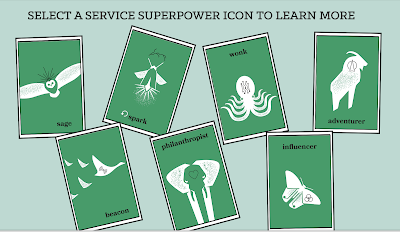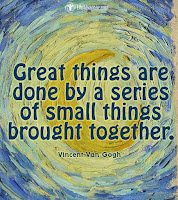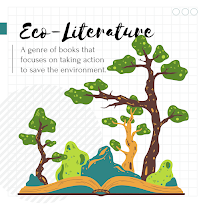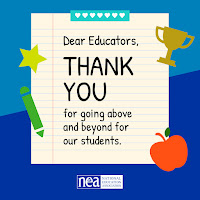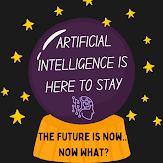Earlier this month I posted that I was reading "
The AI Classroom: The Ultimate Guide to Artificial Intelligence in Education" by Daniel Fitzpatrick, Amanda Fox, and Brad Weinstein. Since writing that, I have finished the book and it has given me both a lot of AI websites to investigate, and a lot of food for thought.
One of the things I have been thinking a lot about, especially when talking with people who are still very new to the concept of AI (and often times bringing the mega fear factor of "why would we open this Pandora's box?!"), is the fact that we have actually had artificial intelligence swirling about quite a bit over the last decade. Many times in subtle ways, but also in a great number of ways we haven't even considered as algorithms give us that "thing" we just so happen to be thinking about or discussing.
Given that, what has begun swirling about in my mind is an ABC list of AI, to show that while yes, it is a very powerful and growing phenomenon, it's been here for awhile!
Alexa and autocorrect
Big data and built-in bias (based on the models AI can be fed)
ChatGPT & other Chatbots
Deep fakes (where a video has been altered digitally and is believable with the intention to spread misinformation)
Email & document programs predicting your sentences you are about to type.
Facial detection & recognition
Google search advertisements (based on your previous searches)
Healthcare-related AI virtual assistants which buy nurses and pharmaceutical companies (and those of us who use them) back time and money.
Instagram, Facebook, social media, & search algorithms
Jobs: machine learning engineers, data scientists, and natural language processing (NLP) engineers
Kitchens with voice activated lights, coffee pots, and reverse-engineered image to recipe generation
Language learning chatbots
Maps & navigation (it's more than just GPS)
Netflix's viewing suggestions
Opening your phone with Face ID
Predictive text
Quantitative data processing in financial institutions which can apply automation and anti-fraud systems
Robotics like Roomba vacuums and more
Siri, "smart" home devices, and self-driving cars and other autonomous vehicles
Text-to-Image, Text-to-Audio, Text-to-Code, and more
Universe: Taking us beyond this planet to outer space. The Mars Rover is a great example.
Voice generators and voice-to-text technology
Wetware, or cybersecurity slang for the human element of IT (versus "hardware" or software")--human error accounts for most of the problems in tech data breeches
X, Y, & Z....These got hard. For them, go to Joe the IT Guy & his A-Z list!
Image from https://www.amazon.com/Classroom-Artificial-Intelligence-Education-Hitchhikers/dp/1959419110/ref=sr_1_1? and https://innovationorigins.com/en/hey-siri-please-stop-using-your-artificial-intelligence-for-a-moment-our-weekly-recap/









